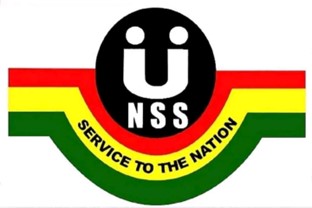Delay in the disbursement of allowances for National Service Personnel has become a norm, causing untold hardship to personnel who rely on the stipend for their survival. Worryingly, these allowances sometimes delay for several months before they are paid to these fresh graduates undertaking their placements from various universities to undertake the one-year mandatory service.
Due to this, the current batch of NSS personnel say the past few months have been very tough – as most of them have had to rely on parents and sometimes friends for transport fare to their various places of service; adding that the situation has been compounded by the high cost of accommodation, which usually requires them to cough-up thousands of cedis.
It has therefore become necessary for government to ensure prompt and seamless payment of the monthly allowances due these graduates, to enable them meet their basic needs during the service period.
In order to achieve this, management of the National Service Scheme have recently announced that it has received government’s approval for upward adjustment of personnel’s allowances from GH¢559.04 to GH¢715.57 with effect from January 2023, and have assured them of their arrears’ immediate disbursement.
The National Service Scheme (NSS) was initiated and established in 1973 – to develop the potential of Ghanaian graduates who complete their education from approved tertiary institutions and create opportunities for them to deliver quality services to the disadvantaged. The Scheme, which is celebrating its 50-year anniversary in 2023, has provided the country with millions of human resources to aid in national development.
Meanwhile, the 2022 batch of personnel have also begun to voice out their concerns and frustrations as a result of the delay, with a few of them commenting and putting up posts on their social media platforms to share their experience and draw attention to the issue. But Acting Director-Corporate Affairs of the scheme, Mr. Ambrose Entsiwah Jnr, in a couple of interviews attributed the delays in payment to a process of monthly verification that seeks to confirm if persons were actually at post during the period before payments are made, adding that: “The process entails personnel filling up forms, getting them signed by their supervisors and submitting them to their regional offices”.
To ensure its sustenance, management of the scheme must figure out an efficient way of addressing the delay in allowance disbursement; such as providing tangible reasons for delays and taking steps to resolve them, and implementing monitoring systems to ensure the disbursement process is closely monitored. Furthermore, seeking additional funds could help solve the delay if financial constraint is the cause.
It is very crucial for managers of the national service to proactively address the delay issue, and continuously improve their systems to ensure timely disbursement of the allowances to make the scheme sustainable.
The writer is a level 300 student of UniMAC-GIJ










